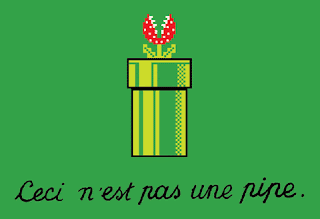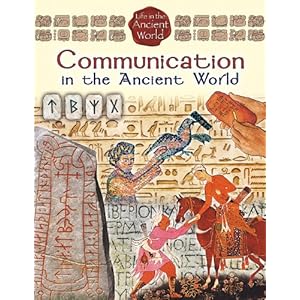The Communicative Problematique
What does this blog communicate? It knows not to whom it
speaks; sender and receiver dance in an interminable display of uncertainty. The
remnant haunts its every move, its every trace, its every waking second of
experience.
The inexhaustible breaths of life-worlds collide and collude in split-second flashes across a screen. The gap, the break, the rupture opens up
as words spray from page to page. Experiments in poetry dishes pretend they are
persons and persons play each other like fiddles.
What can one communicate? The Attempt at Self-Criticism in
The Birth of Tragedy asks if there
are not also neuroses of health. The answer to this questions remains in
the affirmative just as much, if not more, today as it did for the ancients. The utter
profusion of babble and words weave their way into existence in this age of
over-consumption, jumping to levels that would stop Pericles dead in his tracks. There are no
more noble funeral orations, just sensationalized exhibitions of lives that are
no more.
How can thoughts stand out amidst this ever growing mountain
of rubble? Klee’s Angelus Novus is up
to its neck within our temporal threshold. To gain clarity in an age of
technological claustrophobia is like trying to send a terabyte through a
landline.
Can creation remain novel, nay sovereign, in an era plagued
by the simultaneity of infinite fascination and boredom? I say yes, it may, but
only if one has the courage to will it; only if one is born ready to breed new
beginnings; only if one can muster a boldness for greatness that renders the present
subservient to a more ancient wisdom.
This is the task of our times: to learn how to live again;
to learn how to will again, to learn how to love again – in short – to be
willing to risk a sort of loving madness in the face of an existential
serenity. If one admits this to task to be of utmost significance one will
quickly become wanton – where, nay whence can one find the institution
providing such an education? Although man lives in a house of mirrors, he very
seldom takes the time to reflect himself.
A Klee painting named Angelus Novus shows an angel looking as though he is about to move away from something he is fixedly contemplating. His eyes are staring, his mouth is open, his wings are spread. This is how one pictures the angel of history. His face is turned toward the past. Where we perceive a chain of events, he sees one single catastrophe which keeps piling wreckage upon wreckage and hurls it in front of his feet. The angel would like to stay, awaken the dead, and make whole what has been smashed. But a storm is blowing from Paradise; it has got caught in his wings with such violence that the angel can no longer close them. The storm irresistibly propels him into the future to which his back is turned, while the pile of debris before him grows skyward. This storm is what we call progress.
Where then must tragedy have come from? Perhaps out of joy, out of power, out of overflowing health, out of overwhelming fullness? And psychologically speaking, what then is the meaning of that madness out of which tragic as well as comic art grew, the Dionysian madness? What? Is madness perhaps not necessarily the symptom of degradation, of collapse, of cultural decadence? Are there perhaps—a question for doctors who treat madness—neuroses associated with health? With the youth of a people and with youthfulness? What is revealed in that synthesis of god and goat in the satyr? Out of what personal experience, what impulse, did the Greek have to imagine the Dionysian enthusiast and original man as a satyr? And so far as the origin of the tragic chorus is concerned, in those centuries when the Greek body flourished and the Greek soul bubbled over with life, were there perhaps endemic raptures? Visions and hallucinations which entire communities, entire cultural bodies, shared? How’s that? What if it were the case that the Greeks, right in the richness of their youth, had the will for the tragic and were pessimists? What if it was clearly lunacy, to use a saying from Plato, which brought the greatestblessings throughout Greece? And, on the other hand, what if, to turn the issue around, it was precisely during the period of their dissolution and weakness that the Greeks became constantly more optimistic, more superficial, more hypocritical, and with a greater lust for logic and rational understanding of the world, as well as “more cheerful” and “more scientific”? What’s this? In spite of all “modern ideas” and the prejudices of democratic taste, could the victory of optimism, the developing hegemony of reasonableness, of practical and theoretical utilitarianism, as well as democracy itself, which occurs in the same period, perhaps be a symptom of failing power, of approaching old age, of physiological exhaustion, rather than pessimism? Was Epicurus an optimist—precisely because he was suffering?—We see that this book was burdened with an entire bundle of difficult questions—let us add its most difficult question: What, from the point of view of living, does morality mean? . . .
Kant on the im/possibility of explaining self-reflexivity:
That I am conscious of myself is a thought that already contains a twofold self, the I as subject and the I as object. How might it be possible for the I that I think to be an object (of intuition) for me, one that enables me to distinguish me from myself, is absolutely impossible for me to explain, even though it is an indubitable fact (1804/1983: 73).
Labels: Aesthetics, Angelus Novus, Birth of Tragedy, Blogging Pedagogy, Communicative Problematique, cyber rhetoric, Hall of Mirrors, Kant, Klee, life-world, Nietzsche, Technological Claustrophobia, Walter Benjamin









0 Comments:
Post a Comment
Care to Share your thoughts on this post?
Subscribe to Post Comments [Atom]
<< Home